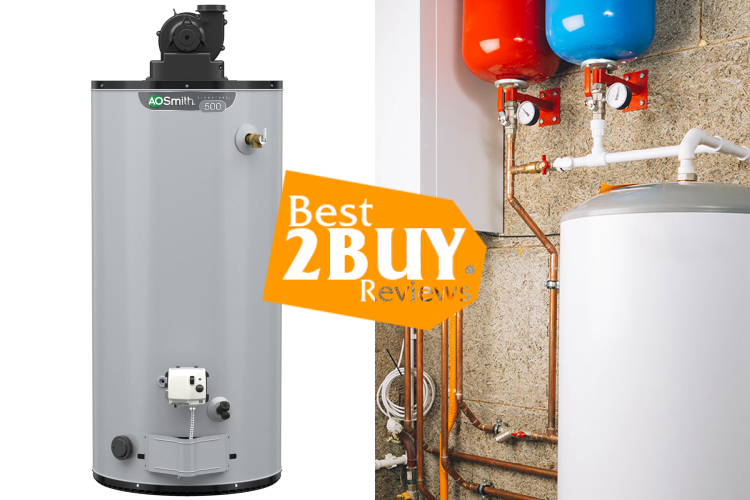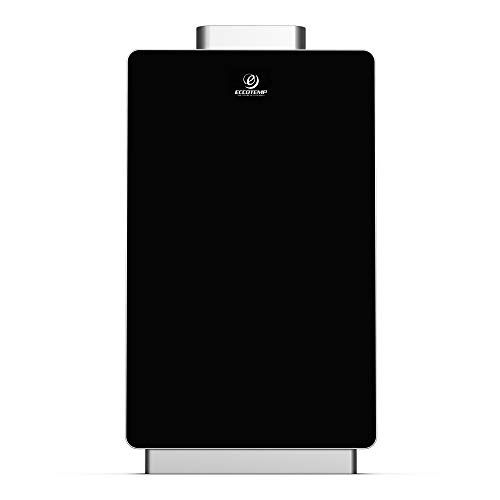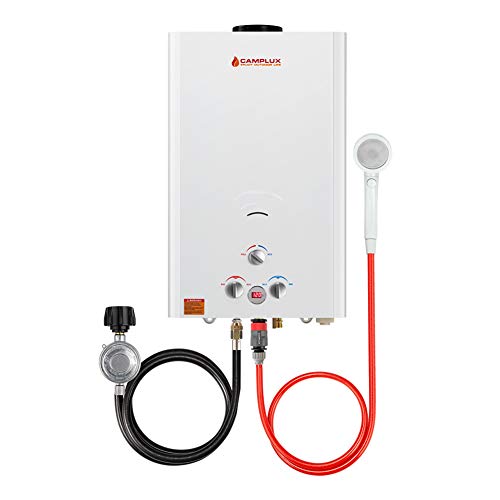Eveything You Need To Know Before Purchasing A Gas Water Heater

- 1. Eveything You Need To Know Before Purchasing A Gas Water Heater
- 2. Factors To Consider When Choosing A Gas Water Heater
- 2.1. Determine your hot water needs
- 2.2. Types of gas water heaters
- 2.3. Efficiency ratings
- 2.4. Safety features
- 2.5. Installation requirements
- 2.6. Budget considerations
- 3. Conclusion
What Is A Gas Water Heater?
A gas water heater is a type of water heating system that uses natural gas or propane as its primary fuel source to heat water. It's a common and efficient way to provide hot water for various domestic purposes, such as bathing, cooking, and cleaning. Gas water heaters come in different designs and sizes, but they generally work on the same principle.
How Gas Water Heaters Work
Gas water heaters operate by heating water through the combustion of natural gas or propane. The process begins when cold water enters the tank through a dip tube, which directs the water to the bottom of the tank. Inside the tank, a gas burner ignites and heats the water, raising its temperature to the desired level. As the water heats up, it rises to the top of the tank, ready for use.
To maintain the desired temperature, gas water heaters are equipped with a thermostat that controls the burner's operation. Once the water reaches the set temperature, the burner turns off until the temperature drops below the desired level. This mechanism ensures energy efficiency and prevents unnecessary fuel consumption.
Types Of Gas Water Heaters
Gas water heaters can be categorized into two main types: storage tank water heaters and tankless water heaters. Let's take a closer look at each type:
- Storage Tank Water Heaters: These are the most common type of gas water heaters. They consist of a large tank that stores and heats a specific amount of water. The tank is insulated to maintain the water temperature until it is needed. When hot water is required, cold water enters the tank through a dip tube, and the gas burner ignites to heat the water. Once the desired temperature is reached, the burner turns off. The heated water is then available for use throughout the house. Storage tank water heaters come in various sizes, typically ranging from 20 to 80 gallons, and they can be powered by natural gas or propane.
- Tankless Water Heaters: Also known as on-demand water heaters, tankless water heaters do not store hot water in a tank. Instead, they heat water instantly as it flows through the unit. When a hot water tap is turned on, cold water enters the tankless heater, and a gas burner or electric heating element heats the water on demand. This allows for a continuous supply of hot water without the need for a storage tank. Tankless water heaters are generally more energy-efficient than storage tank models since they only heat water when needed. They are available in different sizes and can be powered by natural gas or propane.
Advantages of Gas Water Heaters
Gas water heaters offer several advantages that make them a popular choice among homeowners:
- Efficiency: Gas water heaters are known for their high energy efficiency. They heat water quickly and effectively, minimizing energy waste and reducing utility bills.
- Fast Recovery Rate: Gas water heaters have a faster recovery rate compared to electric water heaters. This means they can heat a new batch of water more rapidly, ensuring a continuous supply of hot water even during peak usage times.
- Lower Operating Costs: Natural gas and propane are generally more affordable than electricity, making gas water heaters more cost-effective in the long run. Additionally, gas water heaters tend to have longer lifespans, reducing maintenance and replacement costs.
- Reliability: Gas water heaters are known for their reliability and durability. They can provide hot water even during power outages, ensuring uninterrupted access to hot water.
- Versatility: Gas water heaters come in various sizes and capacities, making them suitable for different household sizes and water usage patterns. Whether you have a small apartment or a large family home, there is a gas water heater that can meet your specific needs.
Disadvantages of Gas Water Heaters
Gas water heaters have several disadvantages that may affect their suitability for certain situations. Some of these disadvantages include:
- Initial Installation Costs: Gas water heaters typically have higher installation costs compared to electric water heaters. This is because they require a gas line and proper ventilation systems, which can add to the installation complexity and cost.
- Limited Placement Options: Gas water heaters require proper ventilation and proximity to a gas line. This limits where they can be installed within a building. Electric water heaters, on the other hand, do not have such strict placement requirements.
- Environmental Impact: While natural gas is considered a cleaner-burning fossil fuel compared to coal or oil, it still contributes to greenhouse gas emissions when burned. If environmental concerns are a priority, electric water heaters powered by renewable energy sources may be a more sustainable option.
- Noise: Gas water heaters can sometimes produce noise during operation, particularly if they have a pilot light or gas burner.
When considering a water heater for your specific needs, it's important to weigh these disadvantages against the benefits of gas water heaters, such as their fast heating capabilities and potential cost savings in areas with relatively lower natural gas prices.
Factors To Consider When Choosing A Gas Water Heater
When it comes to choosing a gas water heater, there are several factors to consider. Gas water heaters are a popular choice due to their efficiency and ability to provide hot water quickly. To ensure you make the right decision, it's important to evaluate your needs, understand the available options, and consider safety and energy efficiency. Let's discuss these aspects in more detail.
Determine your hot water needs
Start by assessing your household's hot water requirements. Consider the number of people in your home, their daily hot water usage, and peak demand times. This information will help you determine the appropriate size and capacity of the gas water heater you need.
Types of gas water heaters
There are two main types of gas water heaters: storage tank and tankless. Storage tank water heaters store and heat a specific amount of water, while tankless water heaters heat water on demand. Tankless heaters are more energy-efficient and provide an endless supply of hot water, but they can be more expensive upfront. Consider your hot water usage patterns and budget to decide which type suits your needs best.
Efficiency ratings
Look for gas water heaters with high energy efficiency ratings. The efficiency is measured by the Energy Factor (EF), which indicates how efficiently the unit converts fuel into hot water. Higher EF ratings mean greater energy savings. Additionally, consider models with good insulation to minimize heat loss and reduce energy consumption.
Safety features
Safety should be a top priority when choosing a gas water heater. Look for models with safety features such as a flammable vapor ignition resistance (FVIR) system, which prevents the ignition of flammable vapors outside the unit. Also, check for a temperature and pressure relief valve (TPR valve) that releases excess pressure and prevents overheating.
Installation requirements
Gas water heaters require proper installation to ensure safety and efficiency. Consider the space available for installation, ventilation requirements, and the need for professional installation. It's crucial to follow local building codes and regulations to ensure compliance and safety.
Budget considerations
Finally, consider your budget when choosing a gas water heater. While tankless models may have higher upfront costs, they can provide long-term energy savings. Compare prices, energy efficiency, and features to find the right balance between cost and performance.
Conclusion
Gas water heaters offer an efficient, reliable, and cost-effective solution for meeting your household's hot water needs. With their fast recovery rate, lower operating costs, and versatility, they have become a popular choice among homeowners. Whether you are building a new home or considering replacing your existing water heater, gas water heaters provide an excellent option to ensure a continuous supply of hot water for your daily activities.











